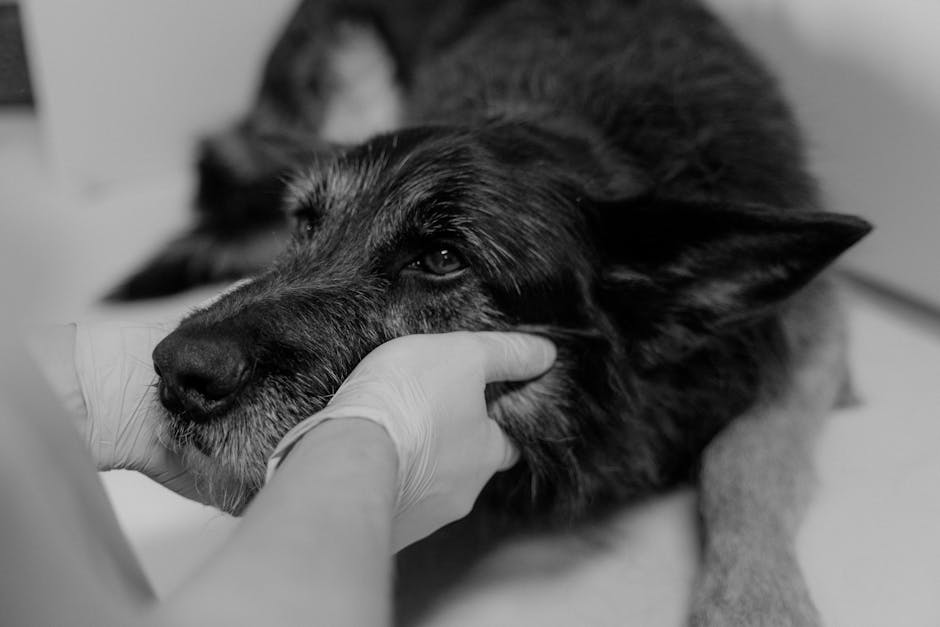Pet ownership is a rewarding commitment, demanding both time and attention. A crucial aspect of responsible pet care is understanding when to schedule veterinary check-ups. Proactive health monitoring can prevent minor issues from escalating into major problems, ensuring your furry friend enjoys a long and healthy life. This article provides a comprehensive guide to determining the appropriate time for your pet’s visit to the veterinarian.
Establishing a baseline for your pet’s health is paramount. A young puppy or kitten’s first visit should ideally be within a few weeks of adoption. This initial consultation allows the veterinarian to establish a baseline for normal health parameters, identify any inherited predispositions to disease, and create a tailored vaccination schedule. Moreover, this early encounter helps you, the owner, learn how to properly assess your pet’s overall well-being. Observing normal behaviours, weight changes, and vocalizations become essential skills in the early detection of possible health problems.
Regular wellness check-ups are equally important for adult pets. The frequency of these check-ups depends significantly on your pet’s age, breed, and lifestyle. Senior pets, for example, often require more frequent visits to monitor age-related changes and potential health concerns, such as arthritis or vision problems. Smaller breeds and certain breeds known for specific health conditions, like hip dysplasia, also benefit from more frequent veterinary attention.
Consider your pet’s activity level and diet. A pet that engages in strenuous exercise or has a diet rich in unhealthy fats may require more frequent monitoring to ensure their bodies are functioning optimally. Likewise, dietary changes and lifestyle shifts can trigger an array of health concerns that are subtle at first but potentially significant over time. A vet can assess the impact and recommend adjustments.
Beyond routine check-ups, specific situations necessitate immediate veterinary intervention. A noticeable change in your pet’s behaviour, such as lethargy, loss of appetite, or excessive drinking and urination, warrants an immediate call to the vet. Similarly, any unusual swelling, limping, or difficulty breathing should not be ignored. Prompt action is crucial in many cases, as early detection and treatment significantly improve the chances of a positive outcome.
A key factor in determining the optimal time for a check-up is the pet’s vaccination status. Many vaccines require boosters, and adhering to the vaccination schedule prescribed by your veterinarian is paramount. Vaccinations not only protect your pet from infectious diseases but also contribute to a healthy and robust immune system.
Beyond vaccines, preventative measures like parasite control play a critical role in your pet’s well-being. Fleas, ticks, heartworms, and intestinal parasites can cause a multitude of health issues. A regular parasite control program tailored to your pet’s environment and lifestyle, as advised by your vet, is essential.
The age of your pet is a crucial determinant in check-up frequency. Young pets require vaccinations and parasite prevention, while senior pets need more frequent monitoring to address age-related conditions. The frequency for adult pets varies, usually every six to twelve months, depending on their health and breed-specific risks.
Another critical aspect involves observing your pet’s daily routines. A sudden change in eating habits, urination patterns, or grooming practices demands a prompt visit to your vet. A thorough observation of subtle changes can alert you to potentially serious conditions like diabetes or kidney disease in their earliest stages.
Furthermore, certain breeds have inherent health predispositions. For instance, large-breed dogs might be more vulnerable to joint problems, and certain cat breeds could have a higher risk of kidney disease. Knowing these breed-specific vulnerabilities aids in scheduling tailored health checks and early detection of potential issues.
While these guidelines offer a roadmap for optimal veterinary care, individual circumstances require careful consideration. Conditions like allergies or existing illnesses necessitate more frequent visits and adjustments to the pet’s care plan. Communicating openly with your vet about your pet’s health concerns, both big and small, empowers you to provide your beloved companion with the best possible care.
In conclusion, proactive pet health management involves a nuanced understanding of check-up scheduling. Considering a variety of factors, including age, breed, lifestyle, and observed behavioural changes, is paramount. Prompt veterinary attention for subtle changes in your pet’s health can significantly improve their quality of life. Ultimately, recognizing when to take your pet for a check-up demonstrates your commitment to their overall well-being and allows for early intervention, ensuring a healthy and happy life for your cherished companion.
